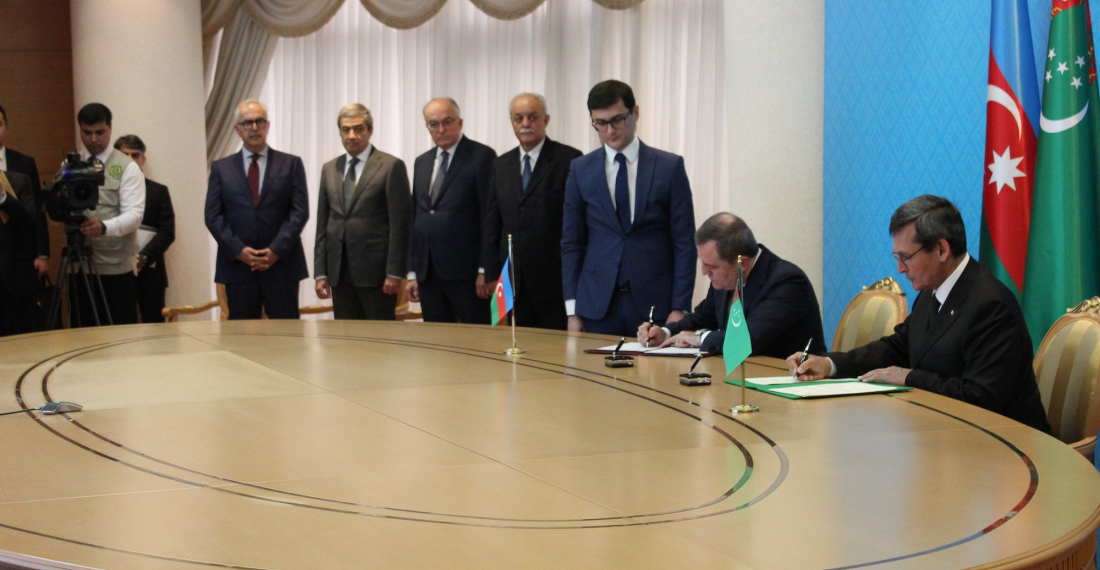After years of negotiations, Azerbaijan and Turkmenistan have reached a preliminary agreement on the joint exploration of a disputed section of an undersea hydrocarbons field in the Caspian Sea believed to hold extensive energy reserves.
President Ilham Aliyev of Azerbaijan and Turkmen president Gurbanguly Berdymukhammedov, attended online the signing by their foreign ministers of a memorandum on the mutual intention to jointly explore and develop the Dostlug (Friendship) undersea field.
For many years the field has been an issue of dispute between Azerbaijan and Turkmenistan, over and above other issues concerning the delineation of boundaries in the Caspian which have been under discussion between the five littoral states for decades. The existence of the field has been known since Soviet times, but disputes about who owned it after the Soviet collapse meant it could not be exploited.
It is hoped that the agreement will pave the way for a trans-Caspian pipeline to link Turkmenistan's gas fields to Europe via Azerbaijan, a project which is strongly supported by the European Union.
“This document is the result of many years of work and is aimed at strengthening and mutual understanding in the energy sector, unlocking the huge mutual potential of the two large energy powers, creating a broad and mutually beneficial international partnership in the Caspian Sea region for the development of sustainable energy,” Berdimuhamedov said.
According to him, in March 2020, during an official visit to Baku, the presidents of the two countries discussed and analysed joint opportunities for cooperation in the energy sector in the Caspian. As a result, agreements were reached on one of the largest fields in the Caspian.
At the same time, it was emphasised that the main result of the agreement will be solidarity, mutual respect and support. “Therefore, our joint decision to name the field “Dostlug” became deeply symbolic. The decisions made, no doubt, will go down in the history of our relations as a vivid example of genuine good-neighborliness, foresight, equality and consideration of each other's interests, ”he said.
Berdymukhamedov believes that the signing of the memorandum marks a new stage in the energy cooperation between Turkmenistan and Azerbaijan in the Caspian Sea. “New opportunities are opening up for joint work on a solid international legal basis, a new incentive is being created for the inflow of large foreign investments into our region on a systemic and long-term basis,” the President of Turkmenistan added.
On his part, Ilham Aliyev said “I am deeply convinced that without close political interaction between our countries at all levels, and first of all at the level of the presidents, the signing of the document today would be impossible. I would call today's document historical, because for the first time Azerbaijan and Turkmenistan are starting joint work on the development of a field in the Caspian Sea. This field, and work on this field, will bring our peoples closer together and will benefit both the Turkmen and Azerbaijani people".
source: commonspace.eu with agencies
photo: The foreign ministers of Azerbaijan and Turkmenistan and other officials at the signing ceremony of the agreement on the joint exploration of the Dostlug field in the Caspian Sea; MFA Azerbaijan







